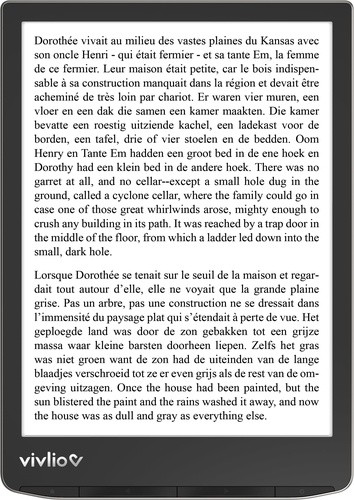En cours de chargement...
Sequential Monte Carlo Methods In Practice
160,49 €
Neuf
Expédié sous 6 à 12 jours
Livré chez vous entre le 26 avril et le 3 mai
En librairie
Résumé
Monte Carlo methods are revolutionizing the on-line analysis of data in fields as diverse as financial modelling, target tracking, and computer vision. These methods, appearing under the names of bootstrap filters, condensation, optimal Monte Carlo filters, particle filters, and survival of the fittest, have made it possible to solve numerically many complex, nonstandard problems that were previously intractable. This book presents the first comprehensive and coherent treatment of these techniques, including convergence results and applications to tracking, guidance, automated target recognition, aircraft navigation, robot navigation, econometrics, financial modelling, neural networks, optimal control, optimal filtering, communications, reinforcement learning, signal enhancement, model averaging and selection, computer vision, semiconductor design, population biology, dynamic Bayesian networks, and time series analysis. This book will be of great value to students, researchers, and practitioners who have some basic knowledge of probability.
Sommaire
- THEORETICAL ISSUES
- Particle Filters - A Theoretical Perspective
- Interacting Particle Filtering With Discrete Observations
- STRATEGIES FOR IMPROVING SEQUENTIAL MONTE CARLO METHOLDS
- Sequential Monte Carlo Methods for Optimal Filtering
- Deterministic and Stochastic Particle Filters in State-Space Models
- RESAMPLE-MOVE Filtering with Cross-Model Jumps
- Improvement Strategies for Monte Carlo Particle Filters
- Approximating and Maximising the Likelihood for a General State-Space Model
- Monte Carlo Smoothing and Self-Organising State-Space Model
- Combined Parameter and State Estimation in Simulation-Based Filtering
- A Theoretical Framework for Sequential Importance Sampling with Resampling
- Improving Regularised Particle Filters
- Auxiliary Variable Based Particle Filters
- Improved Particle Filters and Smoothing
- APPLICATIONS
- Posterior Cramér-Rao Bounds for Sequential Estimation
- Statistical Models of Visual Shape and Motion
- Sequential Monte Carlo Methods for Neural Networks
- Sequential Estimation of Signals under Model Uncertainty
- Particle Filters for Mobile Robot Localization
- Self-Organizing Time Series Model
- Sampling in Factored Dynamic Systems
- In-Situ Ellipsometry Solutions Using Sequential Monte Carlo
- Manoeuvring Target Tracking Using a Multiple-Model Bootstrap Filter
- Rao-Blackwellised Particle Filtering for Dynamic Bayesian Networks
- Particles and Mixtures for Tracking and Guidance
- Monte Carlo Techniques for Automated Target Recognition
Caractéristiques
-
Date de parution24/07/2001
-
Editeur
-
CollectionStatistics for engineering
-
ISBN0-387-95146-6
-
EAN9780387951461
-
PrésentationRelié
-
Nb. de pages580 pages
-
Poids0.99 Kg
-
Dimensions16,0 cm × 24,0 cm × 3,3 cm
Avis libraires et clients
Avis audio
Écoutez ce qu'en disent nos libraires !
À propos des auteurs
Arnaud Doucet received a Ph.D. degree in Electrical Engineering from the University of Paris-XI Orsay in 1997. From 1998-2000, he conducted research at the Signal Processing Group of Cambridge University, in the United Kingdom. He is currently an assistant professor at the Department of Electrical Engineering of Melbourne University, Australia. His research interests include Bayesian statistics, dynamic models, and Monte Carlo methods. Nando de Freitas obtained a Ph.D. degree in information engineering from Cambridge University in 1999. He is presently a research associate with the artificial intelligence group of the University of California at Berkeley. His main research interests are in Bayesian statistics and the application of on-line and batch Monte Carlo methods to machine learning. Neil Gordon obtained a Ph.D. degree in statistics from the Imperial College, University of London, in 1993. He is with the Pattern and Information Processing group at the Defence Evaluation and Research Agency in the United Kingdom. His research interests are in time series, statistical data analysis, and pattern recognition with a particular emphasis on target tracking and missile guidance.





